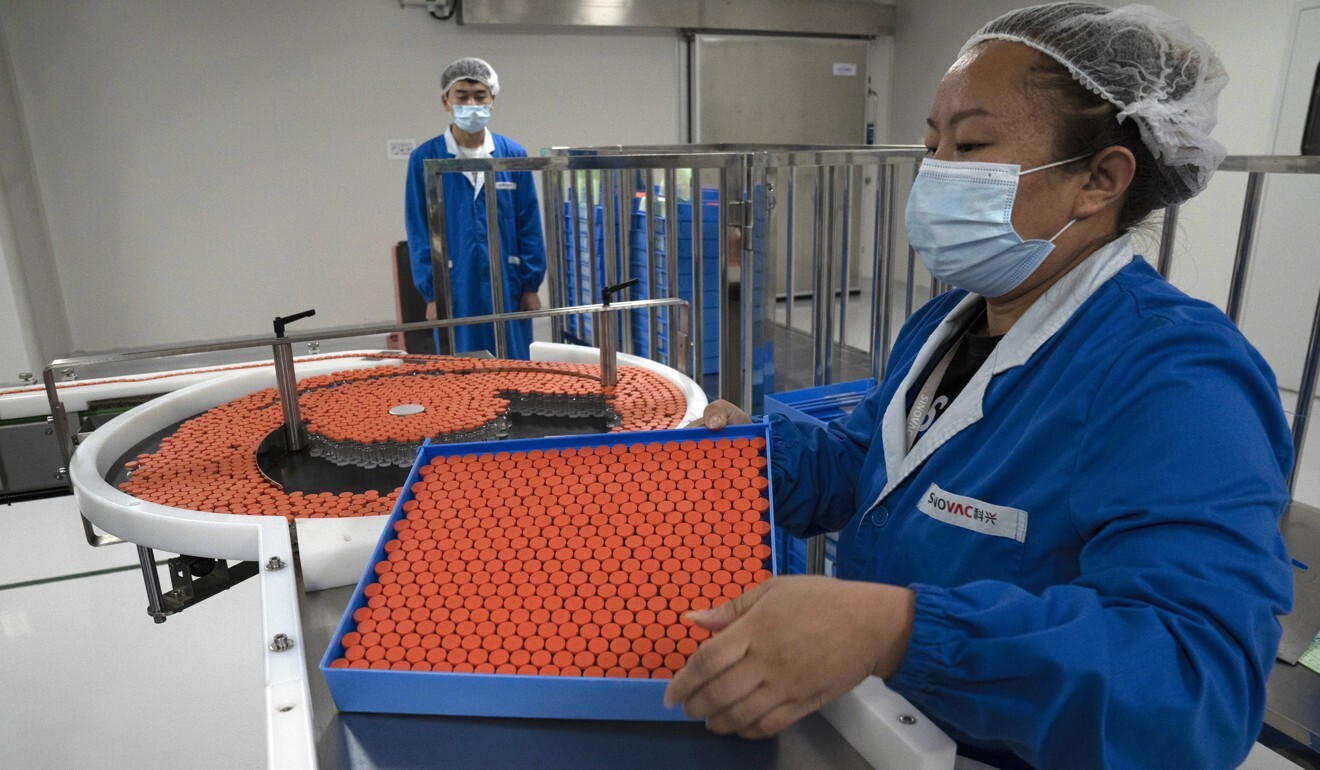
Explainer | Covax: China’s in, America’s out, but what is it all about?
- After saying for some time it wanted to support the global response to Covid-19, Beijing has finally committed to the WHO-led vaccine access alliance
- Chinese scientists are involved in the development of several of the products the scheme hopes to distribute fairly around the world
What is Covax?
It will be implemented by the WHO, the Coalition for Epidemic Preparedness Innovations (CEPI) and the public-private partnership Gavi.
According to the WHO it is designed to serve as an “invaluable insurance policy to secure access to safe and effective Covid-19 vaccines”.
Nine CEPI-approved vaccine candidate vaccines are part of the Covax initiative and nine more – two of them Chinese – are under evaluation.
CEPI is an alliance to finance and coordinate the development of new vaccines to prevent and contain infectious disease epidemics.
Do Chinese Covid-19 vaccines work, and which countries will get them?
Covax aims to deliver at least 2 billion doses of approved vaccines by the end of next year and to ensure “equitable access” to them for all of the countries taking part.
The initiative is also designed to discourage national governments from hoarding vaccines and to prioritise the inoculation of people in high-risk groups in each country.
Gavi described the scheme as an insurance policy for wealthy countries should their own vaccine candidates or deals with foreign suppliers not go to plan.
Which countries are involved?
Each nation is classed either as “self-financing” or “funded”. The former are expected to pay for their own doses and contribute to the cost of providing vaccines to the latter, some of which will not have to pay anything at all.

Nations have already contributed US$1.4 billion to pay for research and development but the WHO said last month a further US$700 million to US$800 million was still needed.
Taiwan and Hong Kong have also signed up for Covax.
Investigation starts into what went right and wrong in Covid-19 response
How will the vaccines be distributed?
Once a Covid-19 vaccine has been shown to be safe and effective, and granted regulatory approval, doses will be allocated to the countries taking part in proportion to their populations.
The first phase of the programme aims to make enough doses available to inoculate 3 per cent of people in each country, which the WHO said would be enough to cover frontline health and social care workers.
Once sufficient numbers of doses are available, each country would receive enough to inoculate up to 20 per cent of their population, and additional doses would be provided to countries where they were considered most needed, it said.
Does China joining Covax change anything?
Beijing did not say exactly how it plans to support the scheme, but said earlier it was in favour of the fair distribution of vaccines around the world.
The WHO said earlier it hoped China and other countries working on vaccine candidates would supply doses for distribution under the scheme.
China is responsible for four of the nine vaccine candidates currently undergoing final stage clinical trials around the world.

